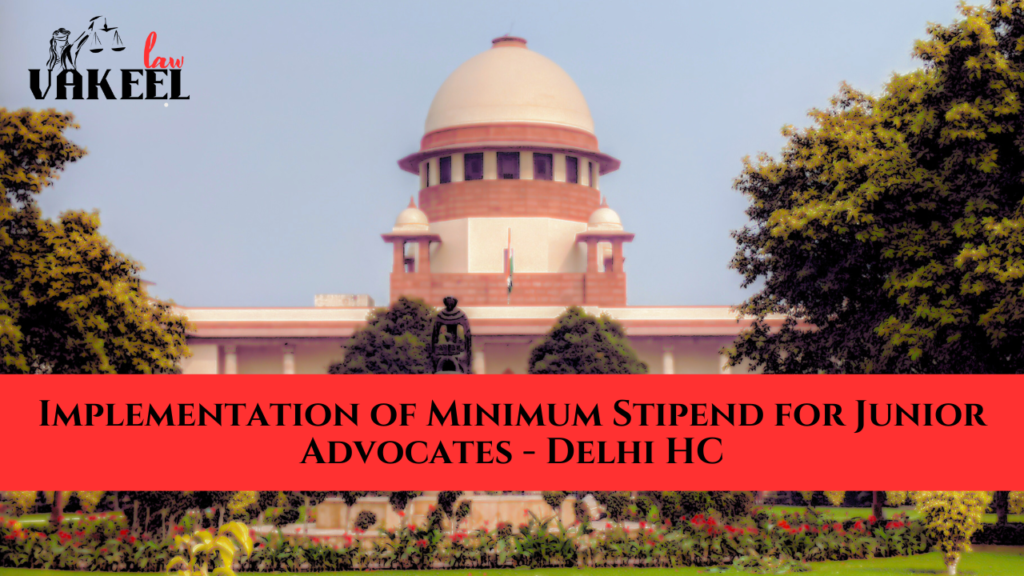In a significant development, the Supreme Court of India has laid down clear guidelines for High Courts regarding the timely pronouncement of judgments. A bench comprising Justice Abhay S. Oka and Justice Augustine George Masih addressed this issue in the landmark case of Ratilal Jhaverbhai Parmar & Ors. v. State of Gujarat & Ors. These guidelines aim to ensure adherence to judicial norms and maintain the sanctity of the judicial process.
Case Background: Ratilal Jhaverbhai Parmar & Ors. v. State of Gujarat & Ors.
This case revolved around a civil appeal challenging the Gujarat High Court’s judgment dated March 1, 2023. The appellants had filed a Special Civil Application under Article 227 of the Indian Constitution, questioning the Deputy Collector’s order dated June 16, 2015.
Key highlights of the case:
- On March 1, 2023, the High Court judge verbally dismissed the petition without stating that “reasons would follow.”
- Over a year later, on April 30, 2024, the appellant’s counsel received a copy of a reasoned order dated March 1, 2023, from the High Court’s IT Cell.
- Investigations revealed that the reasoned order had been dictated to the judge’s personal secretary on April 12, 2024, and uploaded on April 30, 2024.
This timeline raised serious questions about judicial delay and procedural integrity.
Supreme Court’s Observations
The Supreme Court highlighted several issues and provided much-needed clarity:
Judicial Delay and Documentation
- The Court expressed concern over High Courts repeatedly ignoring binding precedents regarding timely delivery of judgments.
- It emphasized that failure to deliver judgments promptly undermines the administration of justice and erodes public confidence.
Analysis of the High Court Judge’s Actions
The Supreme Court found that the High Court judge had violated judicial norms by:
- Failing to mention that “reasons would follow” when verbally dismissing the petition.
- Delaying the drafting of the reasoned order by more than a year.
- Ante-dating the order to March 1, 2023.
Guidelines Issued by the Supreme Court
To prevent such lapses in the future, the Supreme Court issued the following guidelines:
- Timelines for Providing Reasons:
- If the operative part of a judgment is pronounced with “reasons to follow,” the detailed reasons must be provided:
- Preferably within 2 days.
- Under no circumstances beyond 5 days.
- If reasons cannot be delivered within 5 days, the judgment should be reserved.
- If the operative part of a judgment is pronounced with “reasons to follow,” the detailed reasons must be provided:
- Adherence to Order XX of the CPC:
- In cases impacting the status of parties or the subject matter of the dispute, the provisions of Order XX of the Code of Civil Procedure (CPC) must be followed meticulously.
- Judicial Standards:
- Emphasis was placed on the principle: “Justice must not only be done but must also be seen to be done.”
- The Court acknowledged the heavy workload of High Court judges but stressed the need to balance efficiency with procedural propriety.
Final Orders by the Supreme Court
- The Supreme Court set aside the impugned order dated March 1, 2023.
- The petition was restored to the High Court’s file.
- The Chief Justice of the Gujarat High Court was requested to assign the petition to a different judge for fresh consideration.
- The new hearing was directed to proceed uninfluenced by the observations in the March 1, 2023 order.
Legal Framework and Precedents
Article 141 of the Constitution of India
- After India’s independence, Article 141 of the Constitution reinforced the importance of judicial precedents in the Indian legal system.
- It mandates that the law declared by the Supreme Court is binding on all courts within the country’s territory.
- The term “law declared” refers to principles of law derived from the Supreme Court’s judgments and interpretations.
Order XX of the Code of Civil Procedure (CPC), 1908
Pronouncement of Judgments
- General Courts:
- Judgments must be pronounced in open court immediately or as soon as practicable.
- If delayed, judgments should be delivered within 30 days of hearing conclusion, extendable to 60 days in exceptional cases with prior notice.
- Commercial Courts:
- Judgments must be pronounced within 90 days of conclusion of arguments.
- Written Judgments:
- Judges must provide findings on each issue and a clear final order.
- If dictated to a shorthand writer, the transcript must be corrected, signed, and dated by the judge.
Judgment Signing and Modification
- Judgments must be dated and signed during pronouncement in open court.
- Alterations after signing are permitted only under Section 152 of the CPC or during a review.
- Successor judges can pronounce judgments written but not delivered by their predecessors.
Decree Preparation and Content
- Decrees must be prepared within 15 days of judgment pronouncement.
- Appeals can proceed without a decree copy.
- Decrees must include:
- Suit number, party names and addresses, claims, reliefs granted, and cost allocation.
Special Types of Decrees
- Property-Related:
- Immovable property decrees must provide detailed property descriptions.
- Movable property decrees should state alternative monetary relief if delivery is impossible.
- Payment-Related:
- Decrees can include installment payments, with or without interest, and may be modified post-decree with mutual consent.
Documentation and Appeals
Judgment Copies
- Copies of judgments must be made available immediately after pronouncement.
- Parties can obtain certified copies for appeal purposes at their expense.
Appeal Information
- Courts must inform unrepresented parties about:
- The appropriate appellate court.
- The limitation period for filing an appeal.
Conclusion
The Supreme Court’s intervention in this case serves as a critical reminder for High Courts to uphold judicial integrity and efficiency. By setting clear timelines and guidelines, the Supreme Court aims to ensure that justice is both delivered and perceived transparently. These measures not only reinforce public trust but also help streamline judicial processes, ensuring fairness for all parties involved.




